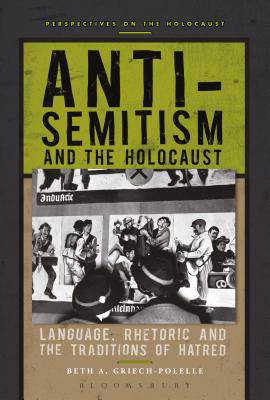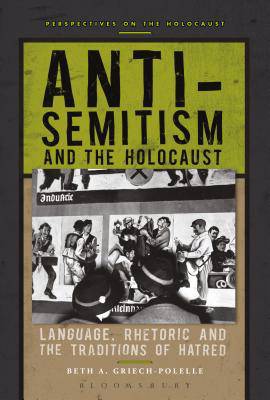
- Retrait gratuit dans votre magasin Club
- 7.000.000 titres dans notre catalogue
- Payer en toute sécurité
- Toujours un magasin près de chez vous
- Retrait gratuit dans votre magasin Club
- 7.000.0000 titres dans notre catalogue
- Payer en toute sécurité
- Toujours un magasin près de chez vous
Anti-Semitism and the Holocaust
Language, Rhetoric and the Traditions of Hatred
Beth A Griech-Polelle
104,95 €
+ 209 points
Format
Description
Anti-Semitism and the Holocaust surveys the history of the Holocaust whilst demonstrating the pivotal importance of the historical tradition of anti-Semitism and the power of discriminatory language in relation to the Nazi-led persecution of the Jews.
The book examines varieties of anti-Semitism that have existed throughout history, from religious anti-Semitism in the ancient Roman Empire to the racial anti-Semitism of political anti-Semites in Germany and Austria in the late 19th century. Beth A. Griech-Polelle analyzes the tropes, imagery, legends, myths and stereotypes about Jews that have surfaced at these various points in time. Anti-Semitism and the Holocaust considers how this language helped to engender an innate distrust, dislike and even hatred of the Jews in 20th-century Europe. She explores the shattering impact of the First World War and the rise of Weimar Germany, Hitler's rhetoric and the first phase of Nazi anti-Semitism before illustrating how ghettos, SS Einsatzgruppen killing squads, death camps and death marches were used to drive this anti-Semitic feeling towards genocide. With a wealth of primary source material, a thorough engagement with significant Holocaust scholarship and numerous illustrations, reading lists and a glossary to provide further support, this is a vital book for any student of the Holocaust keen to know more about the language of hate which fuelled it.Spécifications
Parties prenantes
- Auteur(s) :
- Editeur:
Contenu
- Nombre de pages :
- 296
- Langue:
- Anglais
- Collection :
Caractéristiques
- EAN:
- 9781472586926
- Date de parution :
- 26-01-17
- Format:
- Livre relié
- Format numérique:
- Genaaid
- Dimensions :
- 156 mm x 234 mm
- Poids :
- 589 g

Les avis
Nous publions uniquement les avis qui respectent les conditions requises. Consultez nos conditions pour les avis.






